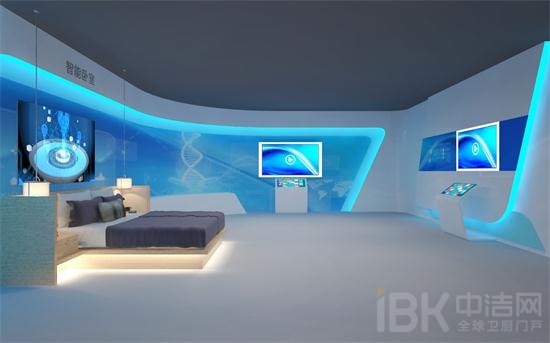In recent years, smart home has been gradually touted by the market. For operators, smart home is the bone that has to be chew. After all, facing the growing scissors, operators have to look for new increments. Smart families become the fifth basic services except voice, broadband, mobile and video, in order to improve the average income of the users and reduce the loss of customers.
However, compared with the hot industry prospects of smart home, the operators' performance is poor, using the current popular live use language, “ a cool to the operator is not too. ”
From the international market, the smart home market is &ldquo, Microsoft + Apple + Google + Amazon ” the four giants dominate, the Microsoft uses the intelligent home control platform Alljoyn to realize the equipment connection and interaction; the apple creates the iOS system's ecological closed loop through the smart home HomeKit platform; the Google through GoogleHome realizes the multi device management; Yama Through the free and open voice system Echo, Xun achieves the common prosperity of industrial ecology. And the operators are still on the road.
In the future smart home industry, operators still have opportunities, can we achieve overtaking in the curve?

The smart home is hot with the operator's “ cool ”
In recent years, the emergence of smart home as a popular concept has brought a lot of new equipment opportunities for suppliers and technology developers. Whether it is an intelligent door lock in 2020 shipments will be nearly 50 million of the temptation, or the strong head of the smart sound box products at the moment, according to StrategyAnalytics forecast that this year the growth rate of smart speakers will exceed 100%.
For the future market of smart home, the advisory body is also adding to its industry prospects. In addition to the above two smart home pastry, other fast growing products include intelligent light bulbs, networked smoke detectors, intelligent door locks, gateways and hubs, and security cameras.
Not only that, the research report shows that the demand for smart home appliances will exceed the sales of smart phones by 2023. Don't pinch the finger, all know the smart home development prospects are considerable, but compared with the hot industry prospects, the operator's smart home slightly “ cool and thin ”
As we all know, the days of operators are not so good, the increment of traditional telecom business is not increasing. Facing the growing scissors difference, the mainstream operators have begun to lay out the smart family, and use it as the fifth basic services of voice, broadband, mobile, video, in order to improve the average income of users and reduce the average income. Customer loss.
Recently, the British O2 announced that the exit of the smart home market reflects the difficulties that many telecom operators face in the smart home market and rounded the alarm again for other operators. Prior to that, Verizon, CharteCommunications (Spectrum) and Switzerland Telecom (Swisscom) and other companies have also closed the smart home business.
As MichaelPhilpott, head of Ovum consumer service research, said, smart home service revenue, or monthly charge service, will account for 32% of the total market. However, the level of competition will be very intense. Therefore, although smart home will continue to be a strong market related to telecom operators, there is still a challenge if we want to profit from it.

Three moves to activate the operator DNA
Since ancient times, a road in Huashan must clenched its teeth. How can telecom operators seize the opportunity of smart home communication service?
At the “ 2018 China Optical Network Symposium &rdquo, the director of the research technology and Standards Institute of China's information and Communication Technology Research Institute, Ao Li points out that smart home has become a new business highlight of telecom operators, and provides three ideas for the operator's layout of smart home business.
The first idea is to connect the equipment to the equipment.
According to Ao Li, enterprises have launched the hardware of intelligent single product, but the products are homogenized seriously and quickly enter the stage of the price war and brush up the market, and then drive the time of zero profit / negative profit to be opened. Although smart home in the smart home as a market explosion point, to the whole industry has injected vitality, but the market always return to the essence, user perspective service is the core competitiveness.
Ao Li suggested that operators can connect the equipment from two aspects, technically, define connection agreements, interconnect the application layer, and vigorously promote and improve the bottleneck of indoor connection in the implementation.
The second idea is to build a platform for service and create a new platform for home gateway.
Ao Li thinks that the role of operator's home gateway must be changed, and it should change from family CT center to IT+CT+DT center. To this end, the operators can force from three aspects. First, operators need to integrate their own capabilities, build open ecology, introduce various kinds of intelligent family applications, and seek a variety of value conversion methods. Secondly, before the intelligent gateway, new services continue to inject several hardware boxes under the gateway, after the intelligent gateway, industry It should be loaded on the intelligent gateway in the way of APP; finally, as an edge device, the intelligent gateway can effectively improve the large data of the edge + terminal behavior, the edge + user behavior big data, the edge + network quality data.
Taking an operator gateway as an example, there are 400 API interfaces, 4 million scale deployments and 28 baseline versions. It can be said that after these three aspects of promotion, the new platform for the home gateway of the operators is not only more powerful, more intelligent, more optimized, but also more diversified.

Thinking three based on its own advantagesTo expand the scope of business.
Ao Li introduced, at present, operators in the expansion of smart home mainly have three modes: model one based on the extension of existing business; model two in the subdivision area deep ploughing; model three based on the platform expansion of the ecology.
Based on the extension of existing business, Ao Li said that based on operators' existing video surveillance, security and other services, with some intelligent features, the difficulty is relatively small. It only needs to integrate and transform the existing business, and does not involve new business R & D. For example, NTTDoCoMo not only improves the original family monitoring service, but also provides services for child care, information announcements, housekeeping nannies, etc. Among them, the last three items are based on the original mobile phone network platform to expand the integration and transceiver platform of home business information, and make use of the platform to earn the cost of traffic generated by intermediary and business.
On the two hand, operators can focus on a specific subdivision of life and enter into a bright spot. This kind of service is guided by a subdivision business and integrates the relevant partners of the industrial chain. Typical case represents the American KT choice pet service market as the entry point of the digital home market, providing TV company and pet health management services for pets. By working with a pet hospital, users can identify the NFC with pet information on their pets, and the hospital provides a pet health management service through a digital medical image sharing system.
On the basis of platform expansion, Ao Li believes that building its own digital family platform, integrating the power of industrial ecological partners, and providing digital home products and services to users. The typical representative of this aspect is the Qivicon platform of DT. It is understood that DT provides smart home services through the Qivicon platform, including a series of basic functions such as video surveillance, energy management, access control, water leakage monitoring, and so on. In addition, users are allowed to personalize scene customization according to their needs. For example, choose breakfast mode: the alarm clock will start at regular intervals, then the curtains will slowly unfold automatically, the lights will start, and the coffee machine in the kitchen will start to work.The water heater of the bathroom is heated automatically. Qivicon takes charge of hardware and service separation.



